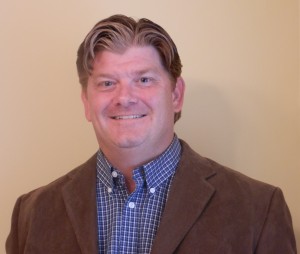 I am a Professor of Atmospheric Science in the Department of Earth, Environmental, and Geographical Sciences. I grew up in central Indiana and became fascinated with the weather at an young age. My early motivation was to study air pollution, but a series of circumstances and opportunities during my pursuit of an undergraduate degree at Purdue University pulled me toward hurricanes and severe weather. During graduate school at Colorado State University, I had the opportunity to visit the NOAA Hurricane Research Division and to participate in their field program, during which they fly through tropical cyclones — an incredible experience! Living and working in Indiana, Colorado, Florida, Iowa, and now North Carolina has diversified my scientific interests into the societal impacts of weather and urban meteorology.
I am a Professor of Atmospheric Science in the Department of Earth, Environmental, and Geographical Sciences. I grew up in central Indiana and became fascinated with the weather at an young age. My early motivation was to study air pollution, but a series of circumstances and opportunities during my pursuit of an undergraduate degree at Purdue University pulled me toward hurricanes and severe weather. During graduate school at Colorado State University, I had the opportunity to visit the NOAA Hurricane Research Division and to participate in their field program, during which they fly through tropical cyclones — an incredible experience! Living and working in Indiana, Colorado, Florida, Iowa, and now North Carolina has diversified my scientific interests into the societal impacts of weather and urban meteorology.
As an educator, my teaching interests include the areas of tropical, mesoscale, synoptic, and urban meteorology, as well as atmospheric thermodynamics and instrumentation. I also teach a professional development seminar for majors and a natural hazards course for non-majors.
As a scientist, I’m interested in the physical processes that influence the formation and evolution of atmospheric systems. To this end, my general research interests encompass all aspects of tropical cyclones, organized mesoscale severe weather systems, and the influence of weather/climate on society and ecosystems. My specific research has focused on (1) interconnections between urban heat islands, extreme heat events, severe weather, regional precipitation, and the built environment; (2) understanding how elevated terrain can influence the structure and intensity of severe storms; (3) forecasting thunderstorm-induced power outages; (4) relationships between the mosquito-transmitted dengue fever virus and weather variability across tropical regions; (5) understanding the ingredients favorable for miniature supercell and tornado formation within landfalling tropical cyclones; and (6) understanding the structure and evolution of tropical cyclones including eyewall and outer rainband convection.
For more information about my classes or my research please click on the links on the left. To learn more about the department, university, or undergraduate and graduate programs in meteorology and earth sciences, please click on the links on the right.